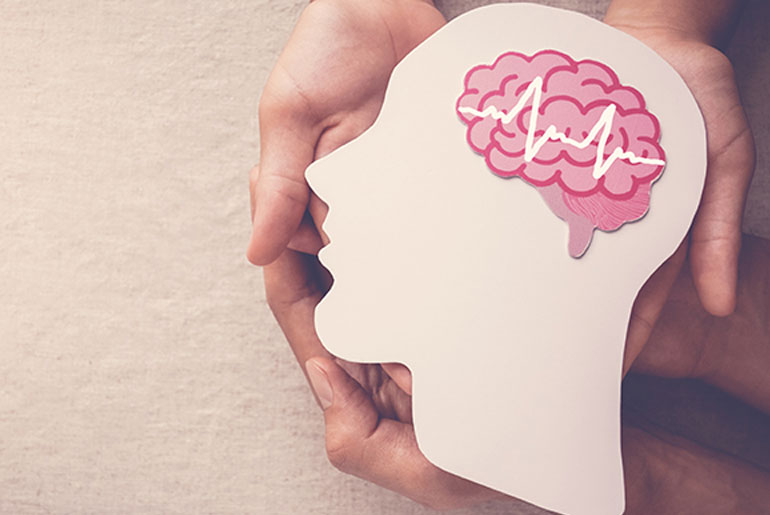Brain strokes are indeed serious health issues that can greatly impact brain health. They occur when blood flow to a portion of the brain is obstructed or when a blood vessel ruptures within the brain, leading to injury or death of brain tissue. This can result in long-term brain impairment, disability, or even death. However, young professionals can take steps to stroke prevention by making lifestyle changes, practicing meditation for stress reduction, and getting regular check-ups with a doctor.
These actions can help manage risk factors such as high blood pressure, diabetes, and high cholesterol levels, which are often associated with strokes. Additionally, maintaining a healthy diet, staying physically active, managing stress effectively, and avoiding smoking and excessive alcohol consumption are important for stroke prevention. By taking proactive measures to maintain their overall health and well-being, young professionals can reduce their risk of experiencing a stroke and promote long-term brain health.
Healthy Eating Habits:
- Focus on a balanced diet rich in fruits, vegetables, whole grains, and lean proteins to support heart health and maintain a healthy weight.
- Avoid foods high in bad fats and cholesterol, as they can contribute to artery blockage.
- Maintaining a healthy weight through proper nutrition helps reduce the risk of stroke.
Regular Exercise:
- Aim for about 30 minutes of moderate activity most days of the week, such as brisk walking or swimming, to keep blood pressure in check and improve heart health.
- Regular exercise helps maintain a healthy weight and reduces the risk of stroke and other cardiovascular diseases.
Limit Alcohol and Quit Smoking:
- Limit alcohol consumption and avoid smoking altogether, as both habits significantly increase the risk of stroke.
- Seek help to quit smoking if needed, and avoid second-hand smoke exposure, which can also be harmful to your health.
Meditation and Stress Management:
- Practice mindfulness and meditation to calm the mind, reduce stress, and keep blood pressure in check.
- Finding healthy ways to cope with stress, such as deep breathing exercises, yoga, or engaging in relaxing hobbies, is important for heart health and stroke prevention.
Regular Health Check-Ups:
- Monitor blood pressure regularly to detect signs of high blood pressure early, as it is a leading cause of strokes.
- Get screened for diabetes and check cholesterol levels regularly, as both conditions increase stroke risk.
- Regular medical check-ups help identify and manage personal stroke risk factors, such as atrial fibrillation, ensuring early intervention and appropriate management strategies.
By incorporating these lifestyle changes and practices into your daily routine, you can significantly reduce the risk of stroke and improve overall health and well-being.
Absolutely, by integrating these strategies into their daily routines, young professionals can significantly reduce their risk of experiencing a stroke. Taking a proactive approach to health, including managing lifestyle factors, stress levels, and prioritizing regular check-ups, can play a crucial role in stroke prevention. It’s essential to recognize the signs of a stroke, such as sudden numbness or weakness in the face, arm, or leg, especially on one side of the body, sudden confusion, trouble speaking or understanding speech, sudden trouble seeing in one or both eyes, sudden trouble walking, dizziness, loss of balance or coordination, and sudden severe headache with no known cause. If any of these symptoms are observed, seeking medical help promptly can make a significant difference in potentially preventing further damage and saving one’s life. Being aware of these signs and acting swiftly can be lifesaving when it comes to stroke.
Traditionally, the vast majority of stroke cases have occurred in individuals aged 45 and above, but recent trends indicate a shift towards younger demographics being affected. Stroke not only poses serious health implications but also carries substantial economic repercussions. The loss of human capital due to stroke-related disabilities often leads to individuals being unable to remain employed, resulting in a dependence on others for care and support. This reliance on informal caregiving not only entails additional economic burdens for both patients and caregivers but also impacts national income.
Globally, estimates suggest that 11% of individuals who have experienced a stroke may encounter a recurrence within one year, with this figure increasing to 26% within five years. Enhancing the quality of care for stroke patients becomes crucial in mitigating the prevalence of this disease, given its potential for long-term serious health consequences if treatment is not administered promptly and economically. Adhering to guideline-recommended practices is imperative to ensure effective and timely interventions, ultimately reducing the burden of stroke and improving patient outcomes.
Disclaimer:
The information contained in this article is for educational and informational purposes only and is not intended as a health advice. We would ask you to consult a qualified professional or medical expert to gain additional knowledge before you choose to consume any product or perform any exercise.







